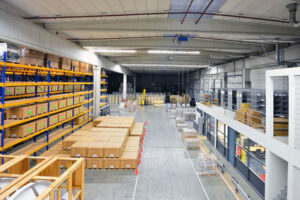In the realm of hospitality, hotels stand as epitomes of service, comfort, and luxury. Behind the scenes, however, the operation of a successful hotel involves a multifaceted business approach. From managing finances to optimizing operations, hotels face an array of challenges that require strategic solutions. In navigating this complex landscape, employing the expertise of business advisors becomes indispensable. This article delves into the critical reasons why hotels should enlist the services of business advisors to elevate their operations and ensure sustained success.
Financial Management
Effective financial management lies at the heart of any successful business, and hotels are no exception. Business advisors bring invaluable expertise in financial analysis, budgeting, and forecasting. They help hotels optimize revenue streams, control costs, and navigate financial challenges such as fluctuating market conditions or economic downturns. By implementing sound financial strategies, hotels can enhance profitability and ensure long-term financial stability.
Strategic Planning
Business advisors play a pivotal role in formulating strategic plans tailored to the unique needs and goals of each hotel. Through comprehensive analysis of market trends, competition, and consumer preferences, advisors assist hotels in devising actionable strategies to capitalize on opportunities and mitigate risks. Whether it involves expanding into new markets, renovating facilities, or diversifying services, strategic planning guided by business advisors enables hotels to stay ahead of the curve and adapt to evolving industry dynamics.
Operational Efficiency
Streamlining operations is essential for hotels to deliver exceptional guest experiences while maximizing operational efficiency. Business advisors employ a holistic approach to assess and optimize various aspects of hotel operations, including staffing, inventory management, and workflow processes. By identifying inefficiencies and implementing best practices, advisors help hotels enhance productivity, reduce overhead costs, and maintain high standards of service delivery.
Market Positioning and Branding
In a competitive landscape, effective market positioning and branding are paramount for hotels to differentiate themselves and attract guests. Business advisors leverage their expertise in marketing, branding, and customer experience management to craft compelling narratives and elevate the hotel’s brand identity. From developing targeted marketing campaigns to enhancing online presence through digital channels, advisors assist hotels in building strong brand equity and fostering customer loyalty.
Risk Management and Compliance
Hotels are subject to various regulatory requirements and operational risks that necessitate vigilant management. Business advisors provide guidance on compliance with industry regulations, safety standards, and legal obligations. Moreover, they help hotels identify and mitigate potential risks such as cybersecurity threats, natural disasters, or supply chain disruptions. By implementing robust risk management protocols, hotels can safeguard their assets, reputation, and guest satisfaction.
Technology Integration
The advent of technology has revolutionized the hospitality industry, offering new opportunities for innovation and efficiency. Business advisors advise hotels on leveraging cutting-edge technologies such as cloud-based systems, data analytics, and automation tools to optimize operations and enhance guest experiences. Whether it’s implementing a new reservation system or adopting smart hotel solutions, advisors help hotels harness the power of technology to stay competitive in the digital age.
Human Resource Management
A skilled and motivated workforce is essential for delivering exceptional hospitality services. Business advisors assist hotels in recruiting, training, and retaining talented staff members. They develop HR strategies that prioritize employee satisfaction, engagement, and professional development. By fostering a positive work culture and providing ongoing support, advisors help hotels cultivate a team of dedicated professionals committed to delivering excellence in guest service.
Conclusion
In the fast-paced and competitive landscape of the hospitality industry, hotels must continuously strive for excellence in all aspects of their operations. Employing the services of business advisors near me is not just a luxury but a strategic imperative for hotels seeking to thrive in today’s dynamic market environment. From financial management to strategic planning, operational optimization, and beyond, business advisors bring a wealth of expertise and insights that empower hotels to navigate challenges, capitalize on opportunities, and achieve sustained success. By embracing the guidance and support of business advisors, hotels can elevate their performance, enhance guest satisfaction, and secure their position as leaders in the realm of hospitality.




